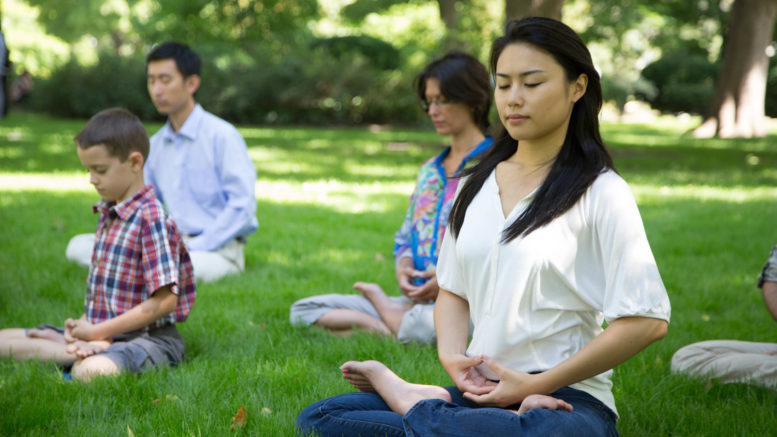Here in Canada, most people don’t think twice about our guaranteed freedom of conscience and religion. For others seeking refuge in Canada, it may be the first thing that crosses their mind.
A decision in the federal court last week will lead to the redetermination of a case involving a Chinese couple seeking refugee status in Canada. On what grounds are they seeking protection you may ask? Religious persecution.
The applicants testified that they had been practicing Falun Gong for several years prior to their arrival in Canada, but due to a Chinese law forbidding the practice, the couple found themselves in danger. After flying in to China from a trip abroad, they were told that if they returned to their home, they would be sought out by the government and arrested. Several members of their Falun Gong group practice had already been arrested and the couple maintain that they are still being sought by the Public Security Bureau to this day.
After making their way to Canada in 2012, the couple applied for refugee status. However, when their case went to the Refugee Protection Division [RPD], their request was refused. The RPD had decided that the applicants’ claims were unreliable. They were not satisfied with the applicants’ answers regarding their knowledge of Falun Gong or why they began the practice. The Division even questioned why the couple would choose to practice Falun Gong in the first place if it meant putting themselves at risk.
It is not up to me to determine how credible this couple’s story is, but if it is true, I cannot imagine what the process must have been like for this couple. To come from a place of religious persecution only to be accused of not being a fervent enough believer must have been jarring.
As Federal Court Justice Gleeson noted, “what may appear implausible from a Canadian perspective may not be implausible in a different social and cultural context”. When it comes to obscure religious practices it can be hard to empathize with its followers, especially if your own cultural framework writes off their beliefs as unjustifiable or illogical. However, this does not mean that their claims are implausible.
I would definitely encourage everyone to read up on the story of China’s systematic suppression of Falun Gong, as it is a very interesting rabbit hole to go down. Nevertheless, I still thought I would include some background information to help you understand the situation for its adherents on the other side of the world, and why it remains a popular claim for Chinese refugees.
The Chinese constitution states that its citizens enjoy freedom of religious belief. However, this freedom is only restricted to “normal” religious practices that fall within five main conventional streams of Buddhism, Islam, Daoism, Catholicism and Protestantism. Anything else is out of the question, and if you are part of the Communist Party, forget about religious belief altogether.
Falun Gong is a spiritual practice loosely based around the qigong strain of Buddhism that promotes truthfulness, compassion and tolerance. While the Chinese government had previously encouraged the practice of qigong, a series of clashes between the government and Falun Gong followers during the 1990’s quickly turned the tide. Propaganda was put out to target Falun Gong specifically as a heretical practice, disruptive of the social order, and counter to ideal Marxist social values. I find it ironic that an officially atheist government can label a practice as heretical, but that’s beside the point.
The practice was outlawed in 1999. Since then, tens of thousands of practitioners have been arrested and forced to renounce their beliefs. If believers refused, they were disappeared, sent to forced labour camps or killed. There have even been reports that China uses its prisoners, including thousands of Falun Gong adherents, to supply the organ transplant market with fresh product. Due to the Chinese government’s actions towards Fulan Gong over the past 20 years, it’s no wonder that its members seek refuge outside of their home country.
North American refuge is not just desirable for Falun Gong practitioners. Many potential asylum seekers see the economic and social benefits of starting a new life in the West. In some jurisdictions, false asylum claims using Falun Gong and other religious minorities as a cover story has become a persistent problem. New York has seen huge busts of phony immigration offices in recent years, with these places offering to help Chinese citizens attain asylum on fraudulent grounds. Since religious prosecution is a valid basis for a refugee claim in the US as it is in Canada, Falun Gong is a go-to cover story. Other popular choices are to claim forced abortion, or persecution because of membership in Christian minority sects or the Chinese Democracy Party. The data about immigration fraud is murky here in Canada, but the mere fact that China prosecutes religious minorities allows opportunistic Chinese citizens to take advantage of the system and make a claim on that basis. The Refugee Protection Division is then charged with sorting out each case. While some claims are clearly genuine, others may not be so convincing, and may require a second opinion.
This brings us back to the case at hand. The Federal Court ultimately found that the Refugee Protection Division’s presumptions of implausibility in this case were unreasonable. They quoted the decision in Chen v Canada, 2015 FC 225 to argue that since plausibility findings are naturally subjective, courts need to exercise caution in rejecting evidence on that basis. Courts should only reject evidence on the basis of implausibility if the evidence is well beyond what could reasonably be expected to occur. The RPD should have never presumed the applicants’ evidence to be implausible – they should have arrived at their conclusions based on the evidence. Instead, the Court found a lack of evidence in the Division’s plausibility findings. Because the RPD’s presumption was flawed, the rest of their analysis was also deemed to be flawed, leading the Federal Court to send the case back for redetermination.
I mention this story to make a point. We are so lucky in Canada to have constitutionally enshrined rights to believe in whatever we want, or nothing at all, and to live without fear of persecution for it. We ought to be thankful that in our country we have separation of church and state, instead of in other countries where the state is the church. This freedom needs to be celebrated. Even if you disagree with your neighbour about the origins of the universe, or about life’s purpose, we can still be united in our belief that we are lucky as hell to be part of such a free society.
This blog post was written by a CCLA-PBSC RightsWatch student. Views expressed do not necessarily reflect the views of the CCLA or PBSC.

